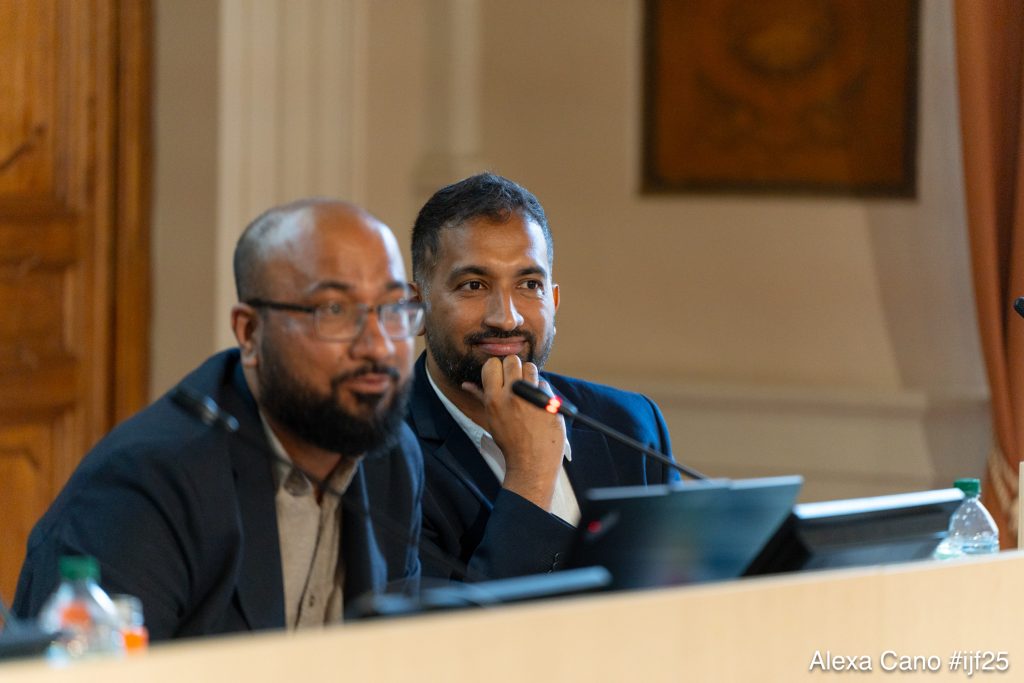Omar Rajarathnam, as Executive Director and Co-Founder of Factum, has built his career at the intersection of journalism, diplomacy, and media sustainability across Asia and the Asia-Pacific. Originally from Sri Lanka, he brings the perspective of both a former reporter and a tireless advocate for stronger financial models to support independent journalism. In this conversation, he reflects on his connection to Report for the World, the values that drive his work, and his commitment to ensuring that media professionals can pursue rigorous, community-rooted storytelling with the dignity and support they deserve.
Can you tell us a bit about your background—where you’re from and what brought you into journalism in the first place?

What excites you most about working in journalism today, especially within the context of underserved communities or global challenges?
The resilience that journalism teaches us everyday is what keeps me close to the profession. I am aware that I am no where close to the excellence many journalists bring to their work, but I am extremely proud that I negotiate relentlessly to sustain their work and offload to the extent possible their burden of having to worry about financial support for their truth to be told boldly, and amplified widely.
Can you share a powerful or memorable moment from your journalism career so far—something that reminds you why you do this work?
How do you think our regional partners (like AIJC, Factum, ARIJ, etc.) can amplify RFW’s mission, and what role will you play in that collaboration?
Local partners bring ground-level nuance and unmatched access to various communities. In addition, I think the likes of Factum can bring their administrative prowess, grant-making and receiving experience to the table so RFW can focus on the broader survival strategies. Factum, ARIJ and AIJC can also bring in younger voices to the important work RFW does. This is crucial for sanity checks and future-proofing our collective efforts.
